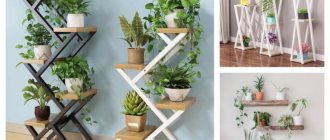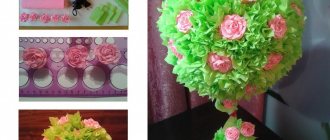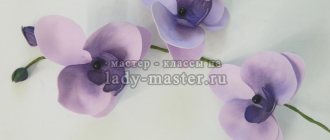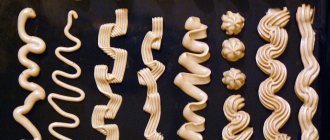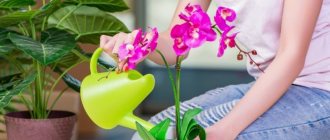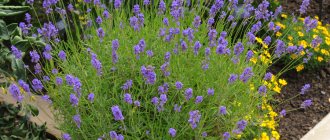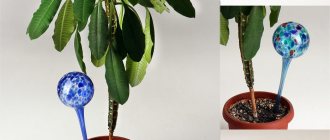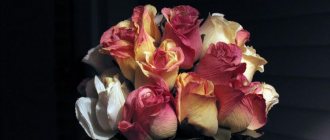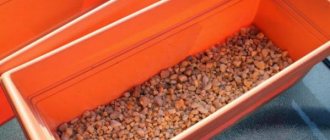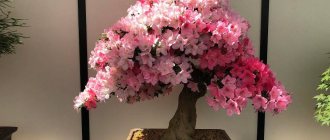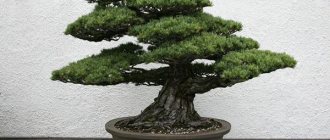Advertising:
Artificial flowers are universal both in terms of materials of manufacture and in terms of application.
What artificial flowers are made from - paper and fabric, plastic and polymer clay, threads and twine, braid and lace, newspapers and autumn leaves - the materials for artificial flowers can be listed for a very long time, as well as the methods of their manufacture and use.
Therefore, in order to save both our and your time, we invite you to immediately familiarize yourself with a selection of the most interesting and simple master classes on making artificial flowers.
Flowers made of satin ribbons and fabric:
Option 1
Materials:
- Wide satin ribbon in cream or pink colors
- Wide green satin ribbon
- Narrow satin ribbon for decoration
- Needle, thread
Option 2
Materials:
- Wide satin ribbon in two shades of the same color (in this case, cream and light brown)
- Buttons
- Needle, thread
Option 3
Materials:
- Wide satin ribbon in cream or pink colors
- Wide gray satin ribbon
- Narrow gray satin ribbon
- Needle, thread
Option 4
Materials:
- Wide white satin ribbon
- Wide yellow satin ribbon
- Wide green satin ribbon
- Needle, thread
Option 5
Materials:
- Wide satin ribbon
- Needle, thread
Option 6
Materials:
- Textile
- Felt
- Flower wire
- Floral Ribbon
- Glue gun
Option 7
Materials:
- Narrow satin ribbon colored
- Thin strip of organza or lace
- Button
Option 8:
Materials:
- White thread
- Green thread
- Balloons
- PVA glue
- Flower wire
- Floral Ribbon
- fine lace
Procedure: cover the table with paper, inflate the balloon, thread the needle straight from the spool and pierce the bottle of glue with the needle. Wrap the ball with a thread soaked in glue in any order. Wait until the glue has completely dried, pierce the ball, and cut the resulting drop of thread.
Option 9:
DIY ribbon with felt flowers
Materials:
- Felt or felt
- Glue
- Elastic tape
Link to a master class on creating a ribbon with felt flowers
Option 10
Wire ribbon peonies
Materials:
- Wire satin ribbon
- Needle, thread
Link to a master class on making peonies from wire tape
Limitless choice
Beads, ribbons, paper, feathers and even disposable tableware can be turned into exquisite creations. At the same time, you only need to familiarize yourself with the master class once in order to create your own unique products in the future.
Artificial paper flowers:
Option 1
Materials:
- Corrugated paper in different colors
- Wire
Option 2
Materials:
- Corrugated cups for cupcakes in different colors
- Garland
Option 3
Materials:
- Newspapers or sheets cut from books
- glue
- braid
- wire
Option 4
Materials:
- Thin paper handkerchiefs
- invisible
- floral ribbon
- flower wire
- multi-colored markers
Option 5
Materials:
- Corrugated paper
- wire
Option 6
Materials:
- thick multi-colored paper
- wire
Option 7
Materials:
- multi-colored corrugated paper
- wire
- pins
Option 8
Materials:
- Corrugated paper
- Wire
Link to a master class on making peonies from corrugated paper
Option 9
Materials:
- Corrugated paper
- Floral Ribbon
- Flower wire
Link to a master class on creating a giant rose
Napkins
Often, flowers from napkins are used to create topiary, children's appliques, or decorate gift wrapping.
How to make artificial flowers from this material:
- Several napkins are unrolled until a rectangular shape is obtained and the unfolded edge is cut off. The napkins are stacked on top of each other and collected like an accordion.
- In the center, the finished accordion is fastened with wire and masked with a piece of napkin of the same color. Then, on both sides, the napkins are lifted and opened until a three-dimensional flower is obtained.
Artificial flowers made of plastic:
Option 1
Materials:
- Bottoms of plastic bottles
- multi-colored varnish
- beads
- wire
Option 2
Materials:
- Plastic spoons
- yellow plastic
- glue
Option 3:
Keychain made of plastic flowers
Materials:
- Plastic
- Acrylic paints
- Beads
- Lace
- Connecting rings and lock
Link to a master class on creating a keychain
Feathers
Feathers carefully selected in size are dyed by soaking in food coloring. After keeping the future flower petals in the solution until they acquire the required shade, the feathers are carefully spread on a woven towel to dry.
The easiest flowers to make are asters and peonies. They can be made by gluing feathers onto a cardboard blank in the direction from the edge to the center. Or you can simply glue the foam blank in the direction from the center to the edge. The outer rows are fixed with glue after the tips of the feathers are stuck into the workpiece.
How to collect a bouquet?
If one plant is not enough for you, and you don’t know how to make arrangements from artificial flowers, then this section will provide similar information. You can collect a bouquet in different ways. As a rule, a wedding bouquet is based on a ball or hemisphere made of foam plastic; a traditional bouquet consists of twigs collected together; flowers on a mesh base look especially original. The classic version of making a bouquet is described in detail below. To make it you will need flowers on stems, scissors, and tape, preferably green.
Instructions:
- Several of the largest and brightest flowers are connected together to form a “cap”; smaller inflorescences, green twigs or buds are inserted between them. At each stage, everything is fixed with tape.
- Then more flowers are added in a circle. If they are different colors and sizes, they must be alternated, inserting a smaller one every two flowers.
- After this, the leaves are laid out in a circle, fixed well and the stems are cut evenly.
- Starting from the top of the bouquet, the handle is wrapped in several layers of satin ribbon. If desired, it can be wrapped with beads, decorated with lace or rhinestones.
We looked at interesting techniques for creating artificial flowers. If you have had such a creative experience, share with us in the comments.
Organza
Organza is a very light and delicate material, which is also easy to work with. Very often, organza flowers are used to decorate a bride’s outfit or accessories. In order to make flowers yourself, you will need: organza, needle, thread, wire, candle, scissors, pattern paper.
How to make artificial flowers from fabric:
- Draw 3-4 even circles of different diameters on paper. The details are cut out, pinned to organza and several petals of each diameter are cut out.
- Over a burning candle, waste trimmings are first burned along the edge to determine how best to hold the petals during firing. Then each petal is burned in a circle; the smaller ones are best held with tweezers.
- All the petals are strung on a thread one by one, starting with the largest. After this, they begin to twist the flower, starting with the smallest details. Then it is hemmed at the base so that it does not fall apart. A wire is threaded into the center and decorated with beads or seed beads.
If you are doing a craft with a child and do not want to use fire, we recommend making a flower as shown in the picture below.
Polymer clay
Flowers made from homemade polymer clay will undoubtedly become a source of pride for the needlewoman and will decorate any interior. In addition, when starting to work with polymer clay, it is quite possible to gain experience by making simple flower arrangements. For this you will need: clay of any two colors for the buds and green for the stem, a knife, a toothpick, a board, wire and beads for decoration.
How to make artificial flowers:
- From two colors of clay, “sausages” are rolled out on a board. Then one strip is placed on top of the other and pressed tightly so that they stick together. You can roll them out slightly for better adhesion.
- Then the strip is cut into thin layers. Each part is slightly expanded on one side and lengthened on the other, forming a petal.
- Pinch off a piece from each color of clay and roll it into a ball. The next stage is creating a flower.
- Ready-made petals are attached to the ball in a circle. To make the bouquet more realistic, flowers and buds need to be made of different sizes.
- Use a toothpick to make a hole in the bottom of the ball and insert a wire wrapped in green clay into it. The core of the flower is decorated with beads.
